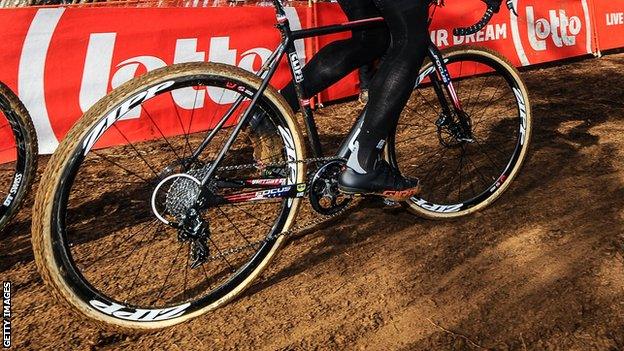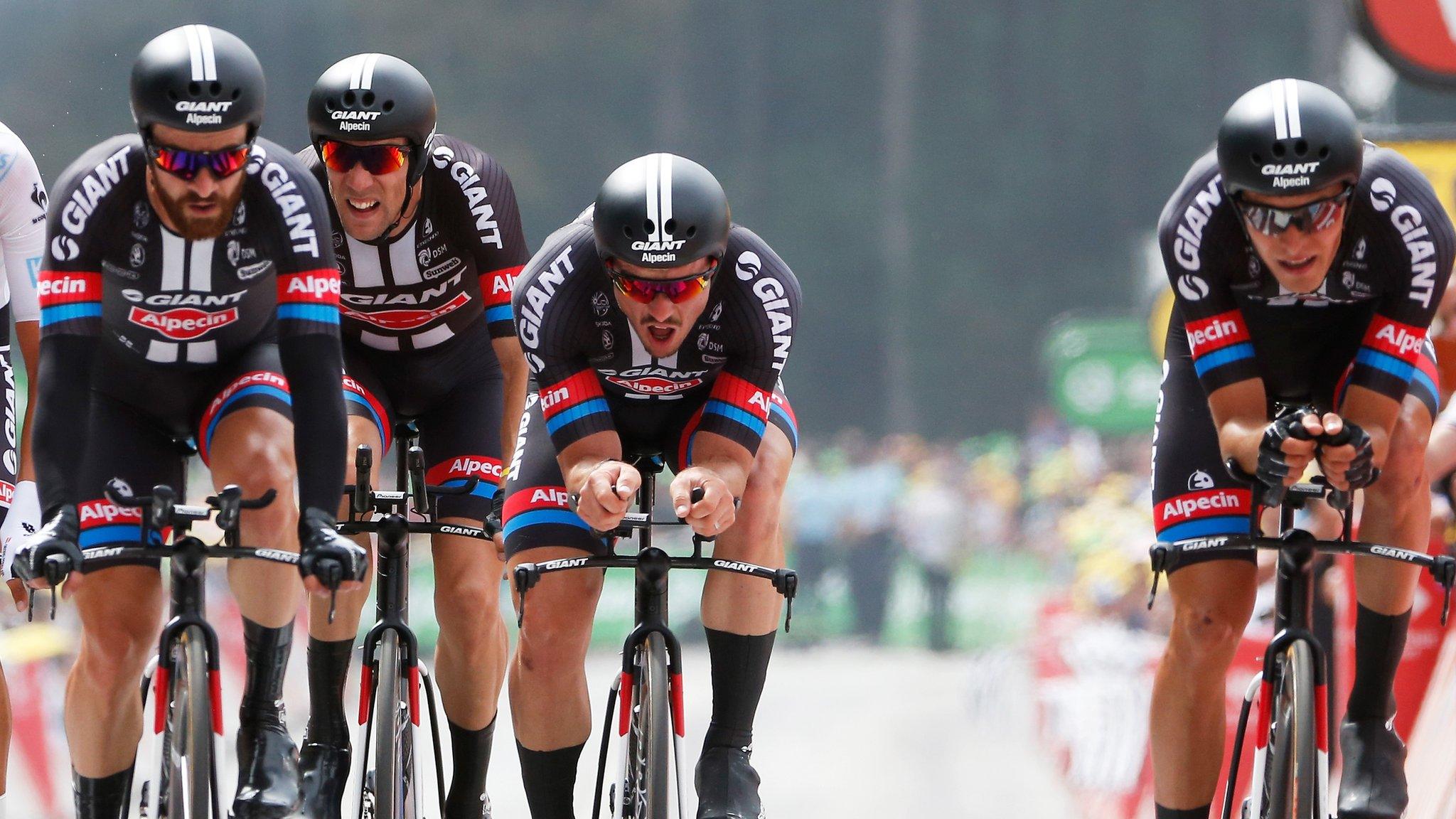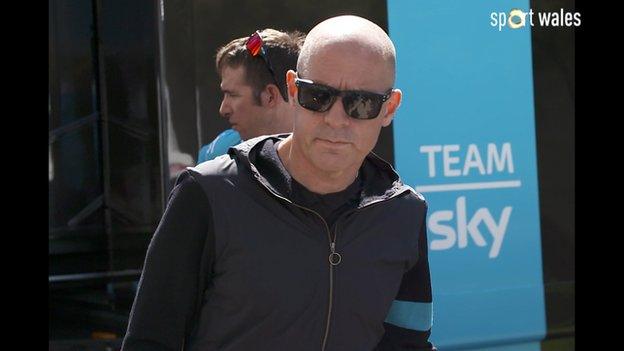UCI confirms motorised bike at Cyclo-cross World Championships
- Published

The Cyclo-cross World Championships are being held in Heusden-Zolder, Belgium
International Cycling Union president Brian Cookson has confirmed the first top-level case of "technological fraud" in the sport.
A bicycle in Saturday's Cyclo-cross World Championships was allegedly found to contain a hidden motor.
The electric device was discovered inside the frame of the machine being used by Belgian teenager Femke van den Driessche.
"It's absolutely clear that there was technological fraud," said Cookson.
"There was a concealed motor. I don't think there are any secrets about that.
"The UCI is committed to protecting riders who do not want to cheat in whatever form and to make sure that the right riders win the race.
"To all the people who want to cheat, Saturday sent a clear message: we will catch you and we will punish you because our technology to detect such fraud seems to work."
'The bike was not mine'
Van den Driessche, 19, who was taking part in the under-23 race that was won by Britain's Evie Richards, denied suggestions she had deliberately cheated.
"The bike was not mine. I would never cheat," she told Belgian television.
"It was my friend's and was identical to mine. This friend went around the course Saturday before dropping off the bike in the truck. A mechanic, thinking it was my bike, cleaned it and prepared it for my race.
"I'm aware I have a big problem. I have done nothing wrong,"
The bike was taken for inspection along with others after the teenager had pulled out on the last lap of Saturday's race with a 'mechanical problem' and had to walk to the finish.
The UCI reportedly used a computer which can read radio frequencies to detect the hidden motor and then removed the seat post to see wires sticking out.
The governing body's regulations on 'technological doping' were introduced last year with guilty riders liable to a minimum suspension of six months and a fine of between 20,000 and 200,000 Swiss Francs (£13,728 and £137,280).
Bike checks for road racing were brought in over the past season, including at the Tour de France where winner Chris Froome's bike was among those tested.
- Published26 January 2016

- Published24 January 2016

- Published24 January 2016

- Published19 July 2016
